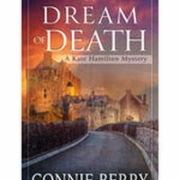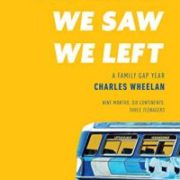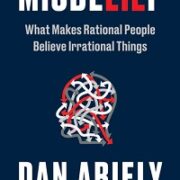It’s All Relative: Adventures Up and Down the World’s Family Tree by A. J. Jacobs
A. J. Jacobs has amused and informed us by living for a year following the tenets of the Bible, reading the Encyclopedia Britannica to become the smartest person in the world, becoming a human guinea pig, and attempting to become the healthiest person in the world. He now tackles genealogy and what is means to be family in It’s All Relative: Adventures Up and Down the World’s Family Tree.
What started his quest to help build the World Family Tree was an email from Jules Feldman. Feldman is a dairy farmer in Israel who in his spare time is building a family tree. A huge family tree consisting of 80,000 relatives including Jacobs who is the eighth cousin of Mrs. Feldman.
Skeptical but intrigued Jacobs follows the suggestion of his brother-in-law and contacts Randy Schoenberg. Randy is a lawyer of some repute (see the film Woman in Gold) and a genealogist. According to Randy genealogy in undergoing two revolutions, DNA and Internet family trees.
He introduces Jacobs to the collaborative genealogy site (Internet family tree) Geni.com. There are others like WikiTree and FamilySearch where you find an ancestor on your tree who is on another family’s tree and soon you are connected to thousands (or more) new relatives. A check of Geni at the time showed over 70 million people in 160+ countries listed on the site.
Geni also has an interesting feature you can use to find your connection to famous people. He describes it as Six Degrees of Kevin Bacon where everyone is Kevin Bacon. Jacobs finds he has connections to Dr. Ruth, Jackson Pollock, Rachel Weisz and Barack Obama who is his fifth-great aunt’s husband’s father’s wife’s seventh-great nephew.
Geni has his interest; next for Jacobs is DNA testing. His DNA test matches him with 1009 presumed cousins including his wife Julie, his seventh cousin. Julie is less than thrilled but, as Jacobs finds, marriage between distant cousins is not that unusual.
With all these cousins and the potential to uncover more Jacobs comes up with the idea to hold a family reunion– a worldwide family reunion. Bringing all these people together he can make even more connections plus he might get in the Guinness Book of World Records. Now all he needs is a place, money and plenty of help.
The reunion is the conclusion of the book and its progress is remarked upon at the end of most chapters but most of the book is about family. What family is, all its different forms, and how would your worldview and prejudice’s change if you thought of people of different nationalities and ethnic background or even the guy who cut in front of you in line as your cousins.
The author talks about Y-Chromosomal Adam and Mitochondrial Eve, evolution, and the DNA humans share with animals. Jacobs explores many aspects of genealogical research including privacy, the emphasis on celebrity connections, how some cultures and ethnicities are not represented, and the significance of names. He even includes an appendix with a guide to getting started on your family tree.
He made connections with a lot of people gathering information, promoting his family reunion and lining up speakers for his event. Most had a story to tell and Jacobs does a wonderful job using them to highlight his chapters.
Jacobs also uses a lot of his own family history which is by turns amusing, touching, and surprising. The story of his great grandmother Gertrude Sunstein emphasizes the point that women are not well represented in the historical documents. Gertrude was a suffragist and very active. When she died in her obituary her suffrage work was noted but she was identified only as Mrs. Elias Sunstein, no first name.
As word of the reunion spreads he hears about other reunions. One is the Hatfield-McCoy event. Yes, the famous feuding Hatfields and McCoys. He also explores black sheep in your family tree and that for every connection you get to Isaac Newton or Malala Yousafzai you get one for John Wayne Gacy or Joseph Stalin.
The global family reunion does happen, in fact 44 simultaneous reunions were held around the world. As Jacobs points out success or failure depended on point of view and I’ll let you be the judge.
Jacobs is an amusing writer and his style is engaging but he also makes you think. How differently would you react and how would your views change if you think of everyone as family?











